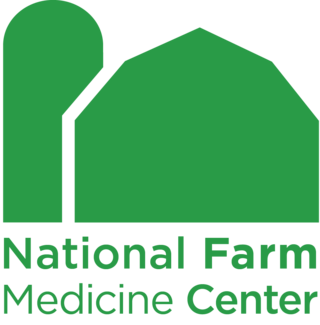Related Research Articles

The United States Department of Agriculture (USDA) is the federal executive department responsible for developing and executing federal laws related to farming, forestry, rural economic development, and food. It aims to meet the needs of commercial farming and livestock food production, promotes agricultural trade and production, works to assure food safety, protects natural resources, fosters rural communities and works to end hunger in the United States and internationally. It is headed by the secretary of agriculture, who reports directly to the president of the United States and is a member of the president's Cabinet. The current secretary is Tom Vilsack, who has served since February 24, 2021.

World AIDS Day, designated on 1 December every year since 1988, is an international day dedicated to raising awareness of the AIDS pandemic caused by the spread of HIV infection and mourning those who've died of the disease. The acquired immunodeficiency syndrome (AIDS) is a life-threatening condition caused by the human immunodeficiency virus (HIV). The HIV virus attacks the immune system of the patient and reduces its resistance to other diseases. Government and health officials, non-governmental organizations, and individuals around the world observe the day, often with education on AIDS prevention and control.

Agriculture is a major industry in the United States, which is a net exporter of food. As of the 2017 census of agriculture, there were 2.04 million farms, covering an area of 900 million acres (1,400,000 sq mi), an average of 441 acres per farm.

In the United States, Patriot Day occurs on September 11 of each year in memory of the people killed in the September 11 terrorist attacks in 2001.
The National Day of Prayer is an annual day of observance designated by the United States Congress and held on the first Thursday of May, when people are asked "to turn to God in prayer and meditation". The president is required by law to sign a proclamation each year, encouraging all Americans to pray on this day.
General Pulaski Memorial Day is a United States public holiday in honor of General Kazimierz Pułaski, a Polish hero of the American Revolution. This holiday is held every year on October 11 by Presidential Proclamation, to commemorate his death from wounds suffered at the siege of Savannah on October 9, 1779, and to honor the heritage of Polish Americans. The observance was established in 1929 when Congress passed a resolution designating October 11 as General Pulaski Memorial Day. Every President has issued a proclamation for the observance annually since.
The Under Secretary for Research, Education, and Economics is a high-ranking official within the United States Department of Agriculture that provides leadership and oversight for the Agricultural Research Service, National Institute of Food and Agriculture, Economic Research Service, National Agricultural Library, National Agricultural Statistics Service.

A rollover protection structure or rollover protection system (ROPS) is a system or structure intended to protect equipment operators and motorists from injuries caused by vehicle overturns or rollovers. Like rollcages and rollbars in cars and trucks, cabs, frames or rollbars on agricultural and construction equipments, a ROPS involves mechanical components attached to the frame of the vehicle that maintain a clearance zone large enough to protect the operator's body in the event of rollover.
Military Spouse Day or Military Spouse Appreciation Day is celebrated on the Friday before Mother's Day in the United States. Many United States citizens take this day to acknowledge the significant contributions, support, and sacrifices of spouses of their Armed Forces. Each year, the US President normally commemorates this day with a ceremonial speech and proclamation.
On August 3, 1990, President of the United States George H. W. Bush declared the month of November as National American Indian Heritage Month, also referred to as Native American Heritage Month. The bill read in part that "The President has authorized and requested to call upon Federal, State and local Governments, groups and organizations and the people of the United States to observe such month with appropriate programs, ceremonies and activities". This landmark bill honoring America's tribal people represented a major step in the establishment of this celebration which began in 1976 when a Cherokee/Osage Indian named Jerry C. Elliott-High Eagle authored Native American Awareness Week legislation the first historical week of recognition in the nation for native peoples. This led to 1986 with then President Ronald Reagan proclaiming November 23–30, 1986, as "American Indian Week".

The National Farm Medicine Center (NFMC), established in 1981, is a non-profit program in Marshfield, Wisconsin dedicated to agricultural health and safety research, and service. The center is a component of the Marshfield Clinic Research Institute, which is part of Marshfield Clinic.

Agricultural safety and health is an aspect of occupational safety and health in the agricultural workplace. It specifically addresses the health and safety of farmers, farm workers, and their families.

This is a list of political appointments of current officeholders made by the 45th president of the United States, Donald Trump.

The following is a timeline of the presidency of Donald Trump during the second quarter of 2017, from April 1 to June 30, 2017. To navigate between quarters, see timeline of the Donald Trump presidency.
The following is a timeline of the presidency of Lyndon B. Johnson from January 1, 1967, to December 31, 1967.

Janie Simms Hipp is the founder of the Indigenous Food and Agriculture Initiative at the University of Arkansas, founder of the U.S. Department of Agriculture's (USDA) Office of Tribal Relations in the Office of the Secretary, founding Executive Director of the Native American Agriculture Fund, agriculture and food lawyer, and policy expert. Hipp's work focuses on the intersection of Indian law and agriculture and food law. On June 10, 2021, she was confirmed as USDA General Counsel, the first Native American to serve in that role.
References
- 1 2 "Farm Safety and Health Week Is Sept. 20-26 | Iowa State University Extension and Outreach". www.extension.iastate.edu. Retrieved 2016-10-17.
- ↑ "Presidential Proclamation -- National Farm Safety and Health Week, 2015". whitehouse.gov . 2015-09-18. Retrieved 2016-10-17– via National Archives.
- ↑ "National Farm Safety and Health Week | Agricultural Safety & Health Program". agsafety.osu.edu. Retrieved 2016-10-17.
- ↑ http://www.necasag.org/aboutnecas/nationalfarmsafetyandhealthweek2016/ [ dead link ]
- ↑ Office of the Press Secretary (September 15, 2017). "President Donald J. Trump Proclaims September 17 through September 23, 2017, as National Farm Safety and Health Week". whitehouse.gov . Washington, D.C. Retrieved September 27, 2017– via National Archives.
- ↑ "National Farm Safety and Health Week Highlighted by State and National Leaders". Arkansas Agriculture Department . Little Rock: Arkansas Government. September 18, 2017. Retrieved September 27, 2017.
- ↑ "National Farm Safety and Health Week, 2017". Federal Register . Washington, D.C.: National Archives and Records Administration. September 15, 2017. Archived from the original on September 28, 2017. Retrieved September 27, 2017. Alt URL